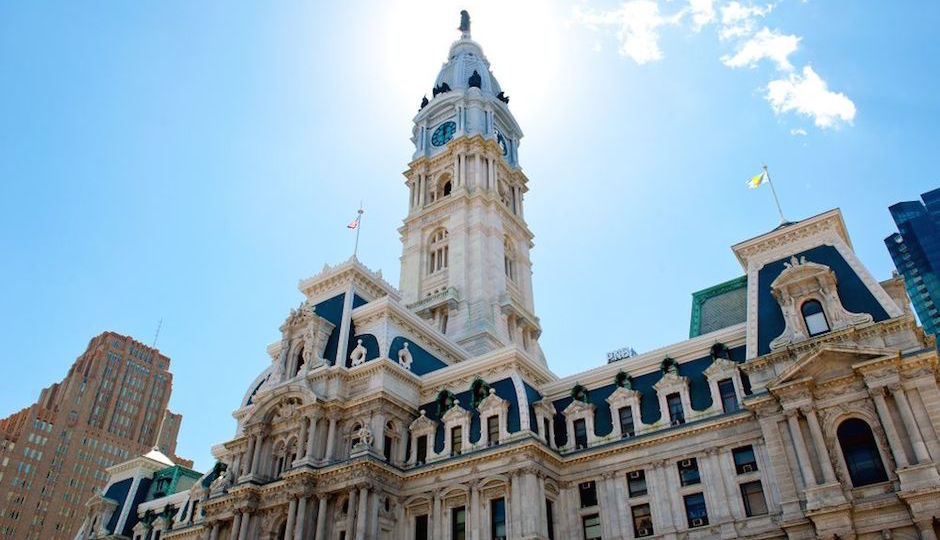5 Takeaways from Tuesday’s Mayoral Debate
Philadelphia will pick its mayor in 34 days. On Tuesday night, the five mayoral candidates (Democrat Jim Kenney, Republican Melissa Murray Bailey, Independent Jim Foster, Independent Boris Kindij and Socialist Osborne Hart) debated for the first time at Center City’s Double Tree by Hilton Hotel. Tamala Edwards of 6ABC moderated. Here are five takeaways from the event:
1. Jim Kenney gave “kudos” to Mayor Michael Nutter for helping organize the papal visit.
To be sure, Kenney wasn’t totally enamored with the way the Nutter administration handled the event. He said the city had flubbed the PR. “Businesses were misled,” he said, “that somehow these pilgrims [who] were coming to see the pope were going to eat in four-star or five-star restaurants.” But Kenney had no complaints about security restrictions, which critics have likened to those in a police state. “Everyone was safe. Everyone was happy. Three arrests,” said Kenney. “I give the Nutter administration kudos for at the end putting it all together.” As a lifelong (though critical) Catholic, he also said he was enthralled by Sunday’s mass and that the pope had renewed the city’s attitude about what it can be.
Bailey was more critical: She said she was thankful no one was hurt, but that “security should blend into the background” and pilgrims will now think of the city as a place where “we had military on every corner.” Kindij said safety was of utmost importance and that the security measures were justified, while Hart highlighted the pope’s messages on inequality and Foster veered off topic.
2. Melissa Murray Bailey tried to make the case that she’s a different kind of Republican.
She said the city needs to invest in kindergarten and first grade. She lambasted Comcast for planning to hire more than 2,000 workers in states such as Washington and Arizona instead of in Philly. She said new residents who move into a neighborhood must partner with longtime residents, rather than pushing them out. And at the end of the debate, she made a direct pitch to Democrats to support her: “You may be feeling a little conflicted right now. You heard what I had to say and you liked it, and you’re asking yourself, ‘Isn’t she the Republican candidate? Can I actually vote for her?’ But there’s a big difference between national politics and local politics. … Let me tell you what being in the GOP in Philly means to me. It means growth, opportunity and peace.”
3. Kenney didn’t shy away from his pro-union beliefs.
Kenney is supported by the majority of Big Labor in Philly. Critics have questioned whether he’ll be able to make decisions that are good for the whole city on any host of issues — pensions, police reform, SRC appointees — given his closeness to unions, particularly the electricians union and the Fraternal Order of Police. On Tuesday, he didn’t shy away from his pro-labor beliefs whatsoever. “You can come down for unions or against them. I’m on the ‘for’ side,” he said. “I had a union card when I was 17.” He said that workers, including those in the restaurant industry, need to be able organize to fight for higher wages. “You can’t live on $10 an hour, you can’t live on $12, you can’t live on $15,” he said.
4. This was the only mayoral debate that included third-party candidates.
Foster said the fact that he, Hart and Kindij aren’t allowed at the other debates (on Oct. 12, 19 and 23) is “just plain outrageous and disgraceful.”
So what are the third-party candidates like? Foster, a longtime newspaper publisher, is appalled by political corruption and ineptitude in the city. On Tuesday, he said Philadelphia has been “rolling downhill for a long time,” that the city drives away businesses that pay good union wages, and that the school district is full of waste. He believes the city’s tax structure must be revamped and that government-owned vacant properties must get back on the tax rolls.
Kindij is laser-focused on the minimum wage: He wants to raise it to $15 an hour. He brought that issue up throughout the debate, and even wore a tie to promote his position.
The aforementioned tie. #nextmayorphl @noushin I know you were curious! pic.twitter.com/S9ZCCaS9xC
— Katie Colaneri (@KatieColaneri) September 30, 2015
Hart is an employee at Walmart who believes passionately in the power of organizing workers as well as city residents. He argued Tuesday that many big issues facing Philly — everything from poverty to education inequality to longtime residents being pushed out of gentrifying neighborhoods — can be addressed if this happens on a large scale.
5. It wasn’t a mudslinger’s debate.
Bailey only once took a jab at Kenney, who is the frontrunner in the mayoral race. She said she spent the summer talking to residents in neighborhoods, “while other candidates were off in other cities.” It was an apparent reference to Kenney’s trips to meet the mayors of Boston and Pittsburgh.
Even though it wasn’t a feisty debate, it was still worth watching. Edwards asked very nuanced questions about poverty, jobs and gentrification, among other things. Attendants got a chance to get to know the third-party candidates. Kenney emphasized his focus on reducing poverty and helping get ex-inmates back on their feet. And Bailey performed well, even garnering shouts from the crowd when she implored Democrats to vote for her despite the “R” next to her name.
